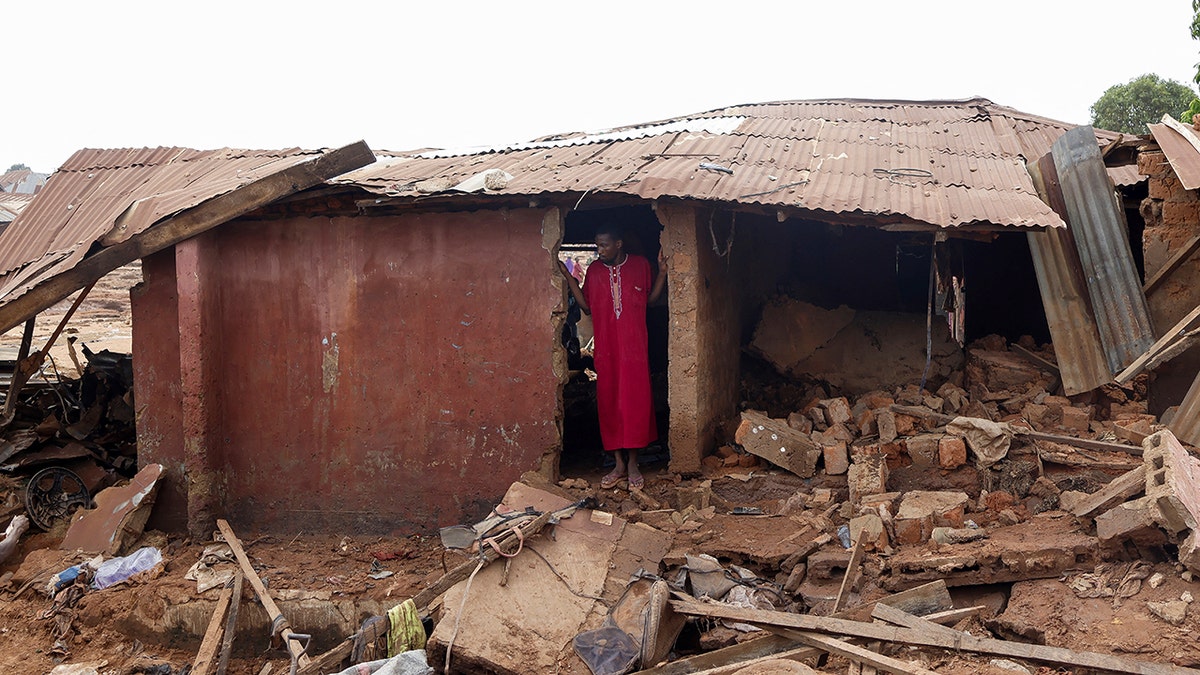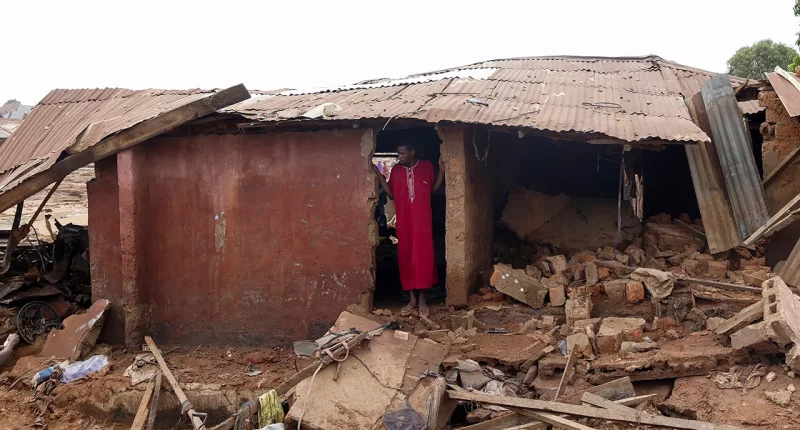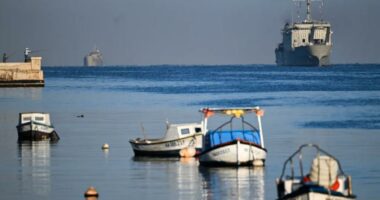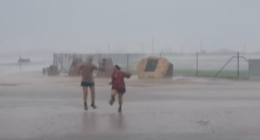Share this @internewscast.com
Predawn downpours unleashed floods that resulted in the deaths of at least 111 individuals in a market town where northern Nigerian farmers trade with southern merchants, officials reported Friday, anticipating the casualty figures to rise.
The Nigerian Hydrological Services Agency did not immediately disclose the rainfall amount recorded after midnight Thursday in Mokwa, a town in Niger state, located over 180 miles west of Abuja, the capital of Africa’s most populous country.
Northern Nigerian communities have been facing extended dry spells exacerbated by climate change and heavy rainfall, which leads to severe flooding during the short wet season.
In videos and photos on social media, floodwaters covered neighborhoods and homes were submerged, with their roofs barely visible above the brown-colored waters. Waist-deep in water, residents tried to salvage what they could, or rescue others.

A person looks on in his collapsed house following flooding that forced several thousands from their homes in Mokwa, Niger State, Nigeria, May 31, 2025. (Reuters/Stringer)
“We lost many lives, and the properties, our farm produce. Those that have their storage have lost it,” Kazeem Muhammed, a Mokwa resident, said.
Besides the 111 confirmed dead, “more bodies have just been brought and are yet to be counted,” Niger state emergency agency spokesman IIbrahim Audu Husseini told The Associated Press by telephone Friday afternoon.
Mokwa, nearly 380 kilometers (236 miles) west of Abuja, is a major meeting point where traders from the south buy beans, onions and other food from farmers in the north.
Mokwa community leader Aliki Musa told the AP the villagers are not used to such flooding. “The water is like spiritual water which used to come but it’s seasonal,” said Musa. “It can come now (and) it will reach another twenty years before coming again.”
The chairman of the Mokwa local government area, Jibril Muregi, told local news website Premium Times that construction of flood-control works was long overdue.
“This critical infrastructure is essential to mitigating future flood risks and protecting lives and property,” he said.
In September, torrential rains and a dam collapse in the northeastern city of Maiduguri caused severe flooding that left at least 30 people dead and displaced millions, worsening the humanitarian crisis caused by the Boko Haram insurgency.

















